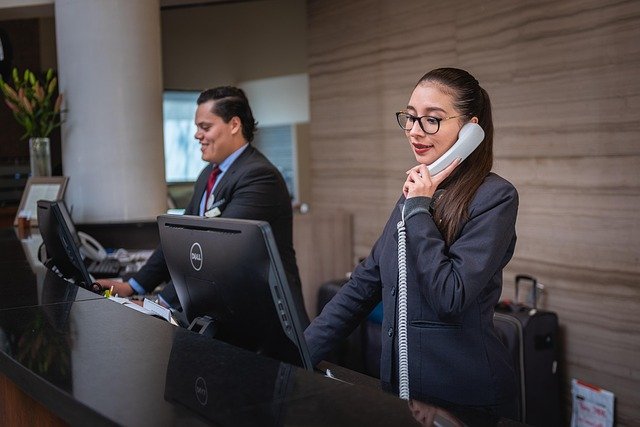Tourism and Hospitality Roles in Japan for International Applicants
Japan’s tourism and hospitality sector continues to attract international talent, offering diverse roles across hotels, resorts, travel agencies, tour operations, and airport services. For foreigners, opportunities may range from guest services and restaurant work to seasonal resort assignments and guided tours. While certain positions require Japanese language skills or industry-specific experience, others focus more on interpersonal ability, cultural understanding, and adaptability. For those seeking work in popular destinations, timing, seasonality, and regional demand play a major role in job availability. Understanding workplace expectations, potential accommodation options, and the structure of shifts can help applicants make informed choices before entering Japan’s tourism workforce.

Types of Tourism-Related Jobs Available to Foreign Workers
The Japanese tourism sector offers diverse roles for international applicants, though availability depends on factors like language proficiency, visa status, and experience. Common positions include hotel front desk staff, tour guides, travel consultants, and restaurant service staff. Major international hotel chains like Hilton, Hyatt, and Marriott typically have more foreigner-friendly hiring practices than traditional ryokans (Japanese inns).
Theme parks such as Tokyo Disneyland and Universal Studios Japan regularly seek multilingual staff for customer service positions. Additionally, tourism information centers in major cities often recruit international workers who can assist visitors from their home countries. These positions typically represent general career paths rather than specific job openings, and availability fluctuates with tourism demand.
Language Skills and Cultural Knowledge Requirements
Japanese language proficiency remains a significant determining factor in hospitality employment opportunities. While high-end international hotels and tourism companies in Tokyo, Osaka, and Kyoto may accept English-speaking staff, most positions require at least conversational Japanese (JLPT N3 level or higher). Roles with direct customer interaction typically demand stronger language skills than back-office positions.
Beyond language, understanding Japanese hospitality principles is crucial. The concept of “omotenashi” (wholehearted service) differs substantially from Western customer service approaches, emphasizing anticipating guest needs before they’re expressed. This cultural knowledge can be as important as language skills, as Japanese employers value staff who can deliver service that meets local expectations while bringing international perspectives that enhance guest experiences.
Seasonal Hiring Trends in Japan’s Tourism Industry
Japan’s tourism hiring follows distinct seasonal patterns that international applicants should consider when timing their job search. Peak hiring periods typically occur before two major tourist influxes: spring (March-May) for cherry blossom season and autumn (September-November) for fall foliage viewing. Many employers begin recruitment 2-3 months before these periods.
Winter sees increased hiring in mountainous regions like Hokkaido and Nagano for ski resort staff, while summer brings opportunities in beach destinations like Okinawa. The Golden Week holiday period (late April to early May) and year-end holidays also drive seasonal employment. These cyclical patterns reflect general trends rather than guaranteed openings, and individual employers may follow different hiring timelines based on their specific business needs.
Working Conditions in Hotels, Resorts, and Travel Agencies
Working conditions vary significantly across Japan’s tourism sector. Major international hotel chains typically adhere to standardized employment practices with defined working hours and overtime compensation. However, smaller establishments may expect longer hours with less formal overtime arrangements. Standard work weeks range from 40-44 hours, though busy periods often require additional time.
Salary structures typically include a base wage plus allowances for transportation, housing, and sometimes language skills. Entry-level hospitality positions generally offer monthly salaries between ¥180,000-¥250,000 ($1,200-$1,700 USD), with higher compensation in Tokyo and other major cities. Benefits usually include health insurance, pension contributions, and paid vacation, though the latter may be difficult to use during peak seasons.
Prices, rates, or cost estimates mentioned in this article are based on the latest available information but may change over time. Independent research is advised before making financial decisions.
How International Staff Integrate into Japan’s Guest Service Teams
Integration experiences vary widely for international staff in Japanese hospitality settings. Larger international chains typically have established onboarding programs and more diverse workforces, making adaptation smoother. These organizations often value cross-cultural perspectives and multilingual abilities that foreign staff bring to guest interactions.
In contrast, smaller Japanese establishments may have fewer foreign employees and less structured integration processes. This can present both challenges (steeper learning curves regarding workplace norms) and opportunities (deeper cultural immersion). Successful integration often depends on demonstrating willingness to learn Japanese workplace etiquette, showing respect for hierarchical structures, and understanding the importance of group harmony (wa) in Japanese business culture.
Some companies implement “buddy systems” pairing new international hires with experienced Japanese staff, facilitating smoother transitions. While workplace cultures are gradually becoming more international-friendly, adaptation remains primarily the responsibility of the foreign employee rather than the organization.
Pathways to Tourism Career Advancement in Japan
Career progression for international workers in Japanese tourism typically follows different trajectories depending on the organization type. International hotel chains offer more standardized advancement opportunities, sometimes including transfers to other global locations. Advancement often requires developing stronger Japanese language skills and demonstrating leadership capabilities that align with local business practices.
Many international workers find that specialization in particular markets (like luxury travel or specific national markets) can accelerate career growth. Others leverage their experience in Japan to secure positions with international tourism organizations that value Japan expertise. While the traditional Japanese career path of lifetime employment with one company is becoming less common, building long-term relationships remains important for career development in this sector.
For those seeking long-term careers in Japanese tourism, investing in formal hospitality education through Japanese institutions can provide valuable credentials and network connections, though these programs typically require advanced Japanese language proficiency.
This article provides general information about career paths in Japan’s tourism industry rather than specific job listings or openings. Job availability, requirements, and working conditions vary widely among employers and change over time.




